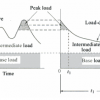https://www.ncbi.nlm.nih.gov/pubmed/30102677 Leucine Metabolites Do Not Enhance Training-induced Performance or Muscle Thickness. Leucine metabolites, α-hydroxyisocaproic acid (α-HICA) and β-hydroxy-β-methylbutyrate (calcium, HMB-Ca and free acid, HMB-FA), have been proposed to augment resistance training-induced changes in body composition and performance. PURPOSE: We aimed to conduct a double-blind randomized controlled pragmatic trial to evaluate the effects of off-the-shelf leucine metabolite supplements of α-HICA, HMB-FA, and HMB-Ca on resistance […]
Relationship between Physical Characteristics and Baseball Performance (Part I)
Relationship between baseball measures and various physical assessments Author Variable Studied N Level of Play Correlation/Results Testing Procedure Measurement Device Reyes et al. 2010 1 RM Back Squat 16 minimum of high school R 2 = 0.406 Back Squat Slow motion capture 1 RM Bench Press R 2 = 0.093 Bench Press Spaniol et al. 2010 Static Rotational Strength […]
Depth Jump vs. Drop Jump: What’s the difference?
A quick post highlighting some of the key differences between depth jumps and drop jumps. Depth Jump Drop Jump Drop Height 75 cm-1.1 m 30-60 cm Amount of Knee Flexion Upon Take-Off The knees are allowed to bend as much as the athlete prefers to obtain maximal jump height The legs should be kept […]
How to use resistance bands
https://www.youtube.com/watch?v=7b3lwWxzSLM For more read: Soria-Gila, M. A., Chirosa, I. J., Bautista, I. J., Baena, S., & Chirosa, L. J. (2015). Effects of Variable Resistance Training on Maximal Strength. Journal of Strength and Conditioning Research, 29(11), 3260-3270. doi:10.1519/jsc.0000000000000971

Is training with maximal power loads most advantageous?
In order to be successful in most sports, a high amount of force has to be displayed in a relatively limited timeframe. Sporting actions such as jumping, running, sprinting, and throwing are good examples. Two quantifiable measures linked to sporting success are power (F x V) and rate of force development. In fact, Stone, Stone, […]
Beef vs. Whey Protein: Head to Head
Naclerio, F., Larumbe-Zabala, E., Ashrafi, N., Seijo, M., Nielsen, B., Allgrove, J., & Earnest, C. P. (2016). Effects of protein–carbohydrate supplementation on immunity and resistance training outcomes: a double-blind, randomized, controlled clinical trial. European Journal of Applied Physiology, 117(2), 267-277. doi:10.1007/s00421-016-3520-x Note: The funding for this study was provided by MEATPROT and the University of Greenwich Introduction: Intense exercise can weaken the body’s immune system leading […]
Study: Effects of Pre/Post Supplements in CrossFit Individuals
Outlaw, J. J., Wilborn, C. D., Smith-Ryan, A. E., Hayward, S. E., Urbina, S. L., Taylor, L. W., & Foster, C. A. (2014). Effects of a pre-and post-workout protein-carbohydrate supplement in trained crossfit individuals. SpringerPlus, 3(1), 369. doi:10.1186/2193-1801-3-369 Introduction: Combined intake of certain nutraceuticals around training sessions has been purported as a method to reduce muscle damage and improve performance. Specifically, pomegranate, tart cherry, and green tea extracts are believed to […]
Carb Timing: Does it improve performance (sucrose)?
Shei, R., Paris, H. L., Beck, C. P., Chapman, R. F., & Mickleborough, T. D. (2017). Repeated high-intensity cycling performance is unaffected by timing of carbohydrate ingestion. Journal of Strength and Conditioning Research, 1. doi:10.1519/jsc.0000000000002226 Introduction: Many team sports require short bursts of intense movement interspersed with lower intensity periods. Repeat bouts of sprints provide a unique energy requirement, as this type of movement requires […]
Alkaline Diet Improves Anaerobic Performance
Primary Reference Caciano, S., Inman, C., Gockel-Blessing, E., & Weiss, E. (2015). Effects of Dietary Acid Load on Exercise Metabolism and Anaerobic Exercise Performance. Journal of Sports Science and Medicine, 14. Introduction: Variations and changes in an athlete’s diet can cause alterations in acid/base balance by as much as ~0.03 pH units. This change is accompanied by a urine pH alteration […]
Hypohydration (dehydrated) has variable influences on anaerobic performance
Primary Reference Gann, J. J., Green, J. M., OʼNeal, E. K., Renfroe, L. G., & Andre, T. L. (2016). Effects of Hypohydration on Repeated 40-yd Sprint Performance. Journal of Strength and Conditioning Research, 30(4), 901-909. doi:10.1519/jsc.0000000000001177 Introduction: Athletes often participate in sports and practice in a hypohydrated state. Research has even demonstrated some athletes perform in a chronic hypohydrated status. Hypohydration impairs performance in training and competition. […]
Being Dehydrated (2.4%) Impairs Endurance Performance
Primary Reference James, L. J., Moss, J., Henry, J., Papadopoulou, C., & Mears, S. A. (2017). Hypohydration impairs endurance performance: a blinded study. Physiological Reports, 5(12), e13315. doi:10.14814/phy2.13315 Secondary References Cheung, S. S., G. W. McGarr, M. M. Mallette, P. J. Wallace, C. L. Watson, I. M. Kim, et al. 2015. Separate and combined effects of dehydration and thirst sensation on exercise performance in […]
